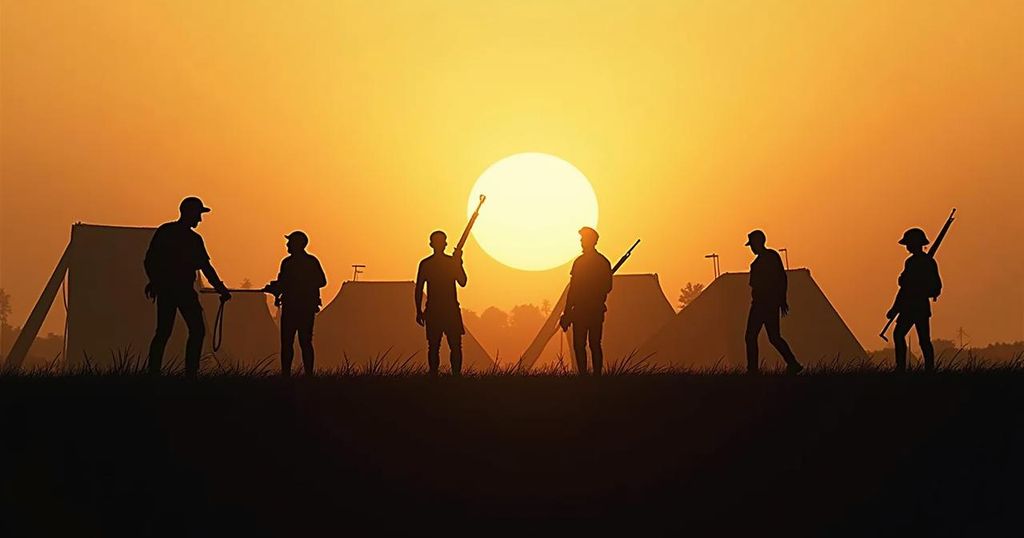Rwanda and M23 Rebel Group Allegedly Shell Displaced Camps in Eastern Congo
Human Rights Watch has reported that Rwanda’s army and the M23 militia have been shelling displaced persons camps in eastern Congo, causing civilian casualties and human rights violations. The ongoing conflict in eastern Congo involves numerous armed groups, exacerbating the humanitarian crisis and raising concerns of foreign military involvement. Diplomatic tensions mount as Congo seeks accountability for these actions.
According to a recent report from Human Rights Watch, it has been alleged that Rwanda’s army, along with the M23 rebel group it supports, has been indiscriminately shelling camps housing displaced individuals in eastern Congo. The report highlighted that this has resulted in the deaths of camp residents and further articulated that both the Rwandan military and the Congolese army have contributed to human rights abuses against civilians. The situation for displaced persons has been exacerbated as Congo’s forces have reportedly stationed artillery near these camps, increasing their vulnerability. The eastern regions of Congo have been plagued with violence from over 120 armed groups vying for control over land and lucrative mineral resources, continuing a long history of unrest. The M23, primarily consisting of ethnic Tutsis and having initially defected from the Congolese army over a decade ago, has been implicated in various human rights violations, including mass killings and sexual violence. The group had a notable offensive in 2012, which culminated in its capture of Goma, a strategic city near the Rwandan border, an area that remains under threat once again. Congo has consistently accused Rwanda of aggression and war crimes within its borders, while the United States and United Nations experts assert that Rwanda continues to provide military support to the M23. Although Rwanda refutes these claims, it acknowledged in February that it has deployed troops and missile systems to eastern Congo, citing security concerns due to the escalation of Congolese military presence near its border. On July 2023, U.N. experts estimated that the Rwandan military presence ranges between 3,000 to 4,000 troops in eastern Congo, alongside M23 fighters who have been making significant advancements in the region. In response to these developments, a regional court in East Africa has commenced legal proceedings initiated by Congo against Rwanda, accusing the latter of infringing upon Congo’s sovereignty by offering assistance to rebel factions. Moreover, Congolese President Felix Tshisekedi has publicly called for sanctions against Rwanda for its purported support of M23 during his address at the United Nations General Assembly earlier this week, signaling a further escalation in diplomatic tensions between the two nations.
The Congolese eastern region has been embroiled in turmoil for decades, with armed conflicts driven by issues of power, land, and natural resource wealth. The proliferation of armed groups has resulted in significant human rights violations, including mass displacements. The M23 rebel group has resurfaced as a major player in this conflict, with ties to Rwandan military forces, which have raised international concern regarding sovereignty and regional security. The ongoing tension is complicated by allegations of foreign military involvement and the humanitarian crisis caused by such conflicts, which have displaced millions.
In summary, Human Rights Watch has raised alarms over the alleged shelling of displaced persons camps by the Rwandan army and the M23 militia in eastern Congo, resulting in civilian casualties and worsening human rights abuses. The complex interplay of regional conflict, military involvement, and humanitarian crises illustrates the precarious situation of displaced individuals in the region. Calls for accountability and sanctions highlight the need for a concerted international response to uphold human rights and maintain regional stability.
Original Source: apnews.com




Post Comment